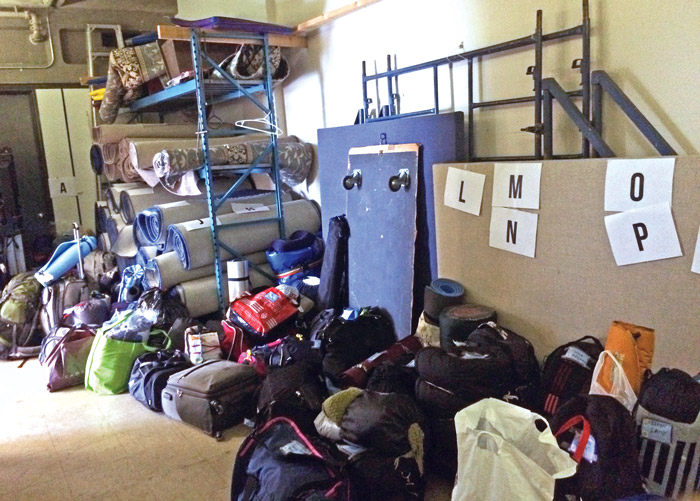During the first week of Fall 2016, the Students’ Society of McGill University (SSMU) implemented Crash Pad, an initiative that allowed Frosh participants to sleep in the SSMU Building ballroom overnight. Students registered online earlier in the day, and then went to the ballroom with a sleeping bag to ‘crash’ peacefully under the watchful eye of security services. While this was a great initiative—as it provided students with a safe place to stay after a late night of drunken folly—it begs another question: If Crash Pad is extended throughout the rest of the school year, will it be a viable alternative to McGill’s expensive residences?
SSMU has not yet stated whether or not it will implement Crash Pad permanently throughout the year, but it has not ruled out this possibility. Because incoming freshmen have to shell out more money than almost any other student in Canada for access to university-sponsored residences—the average cost of living in residence at McGill in 2015 was $15,000—living at SSMU may just be the most enticing option should Crash Pad become a regular service. In theory, all students would need is a student ID in order to access safe and free shelter. Sure, they would be sleeping on the floor, but when calculating the costs and benefits of living at McGill’s official residences versus SSMU’s Crash Pad, the financial pros just might outweigh the comfort cons.
Residences at McGill, with the exception of Solin Hall and MORE Houses, require a mandatory meal plan that costs $5,475 per year. This hefty amount can only be spent at university sponsored cafeterias and businesses—all of which are located on McGill’s campus. Living at Crash Pad, however, has no initial costs or location restrictions. There is also nowhere to store food, but that is remedied by the availability of sustenance around campus and in SSMU itself. Services such as Midnight Kitchen and the Free Food on Campus and in Montreal Facebook group allow students to eat to their heart’s content with little to no money spent.
After discounting the cost of the meal plan from the $15,000 average, the remaining $9,525 of residence fees are put towards accommodation, including heating, running water, and a bed, among other amenities. At Crash Pad, none of this is required. If students invest in a sleeping bag for around $100, they can amplify their body heat and fashion a bed of sorts. As for personal hygiene, all tuition-paying McGill students get access to showers at the McGill Sports Complex. While Crash Pad dwellers will have to commute in order to bathe, the walk up the hill and a lap in the pool will do some good for the kinks in their backs that they might get from sleeping on the floor.
Residences do have washing machines and dryers, yet students have to pay $2 each time they use one of these machines. This cost is similar to other laundromats in the area.
A highlight of residence is the ability to store one’s things in a safe and private space. At Crash Pad, students are given no such luxury. Luckily, a locker in Leacock costs only $35 for the year. Another perk of living at Crash Pad would be its enforced minimalistic lifestyle: If something doesn’t fit in a locker, throw it out.
After adding up all the costs, and adjusting for the estimated frequency of use of these services, living in SSMU for an academic school year would cost around $263 if students pay to do their laundry once per week (and only $135 if they wash their clothes in a sink). In solely financial terms, Crash Pad is clearly the most logical accommodation choice for incoming students. Sadly, until Crash Pad becomes a permanent fixture at SSMU, first-year students will have to continue paying for McGill’s costly residences.





